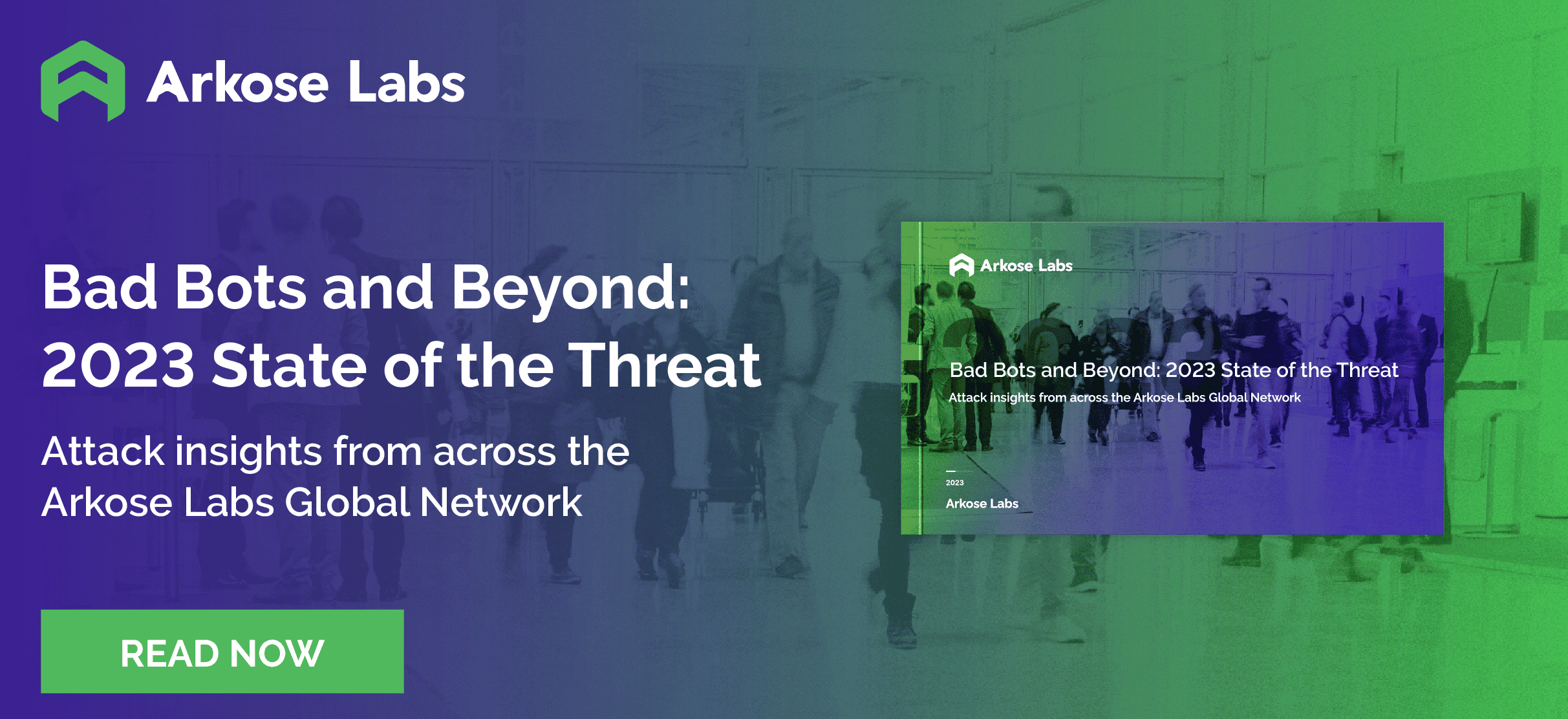The only way to fight fraud is a long-term approach—rooted in preventing the attacks—by eliminating the associated financial returns
At Arkose Labs, we protect the leading global brands from fraud and online abuse. We are privileged to serve some of the most admired digital businesses across industries including online gaming, online retail, travel, financial institutions, media and technology platforms, and social media. All of these digital businesses operate at large scales serving a global customer base, which also exposes them to ever-evolving fraud and abuse.
Easier Than Ever to Attack
The rise of digital has its own pros and cons—much like the two sides of a coin. While digital has made shopping, entertainment, and peer-to-peer interaction easier, it has also spawned a number of complex, technology-driven attacks. The connected nature of the global economic ecosystem and easy access to sophisticated criminal tool-kits have made it easier than ever before for fraudsters to orchestrate large-scale automated and organized attacks.
Today, fraudsters have personally identifiable information of millions of users at their disposal which they have harvested from data breaches, phishing, hacking, and so forth. They can abuse all of this data to fake online identity, intent, metrics, and content, to cause serious security and financial repercussions for any business with an online presence.
The Connected Fraud Ecosystem
The risk landscape today has not only become complex but is also evolving rapidly. Fraudsters are leveraging technology and sharing 'expertise' which allows them to tweak their attack patterns as long they remain profitable.
To illustrate how fraudsters are evolving with rapid technological developments and leveraging the connected fraud ecosystem to maximize their exploits across industries and use cases, Arkose Labs undertook an in-depth study. We analyzed over a billion (1.2 billion) transactions spanning account registrations, logins and payments across industry segments and found interesting attack patterns and deep insights into the evolving 'fraudscape'.
Deep Dive Insights
It's my pleasure to present the detailed findings in a report titled Arkose Labs Q3 Fraud and Abuse Report that sheds profound light on the connected nature of the fraud ecosystem and illustrates how fraudsters deploy different calculated strategies—based on industry and business models—to maximize each attack’s ROI.
Our report provides interesting insights into the attack patterns and modus operandi for industry segments including social media, technology, financial services, travel, and retail. Of the 1.2 billion transactions analyzed, Arkose Labs finds that automated attacks represent the bulk of the traffic, ranging from large-scale account validation attacks, to bots blocking seats on an airline to scripted attacks that scrape user data and inventory. One of the key revelations of the Arkose Labs Q3 Fraud and Abuse report is the quick metamorphosis of developing economies as fraud hubs due to the easy availability of sophisticated tools, cheap manual labor, and good economic incentives associated with online fraud.
Long-term Approach to Fraud Prevention
Our report also provides insights into the psyche and motivation behind these attacks and how digital businesses can stop fraud and online abuse right at the entry gates. At Arkose Labs, we believe fraudsters will continue to perpetrate attacks as long as they provide fraudsters with financial incentives. Therefore, we believe that the only way to fight fraud is a long-term approach—rooted in preventing the attacks by eliminating the associated financial returns—that protects the revenues and brand reputation of digital businesses while also enabling them to build strong customer relationships.
To read the report for yourself, download it here.








